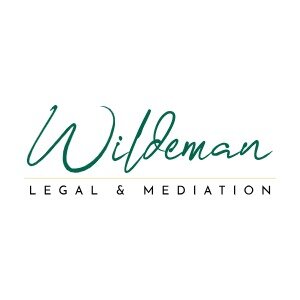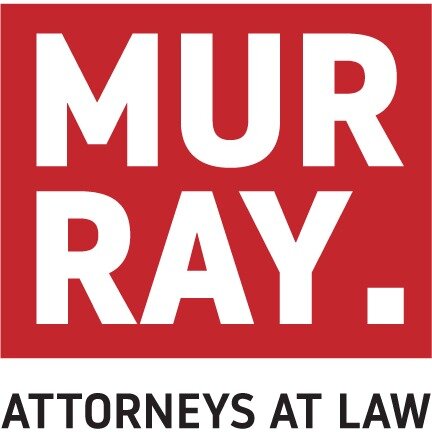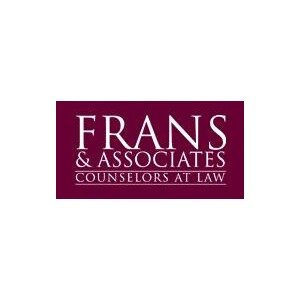Best Communications & Media Law Lawyers in Curaçao
Share your needs with us, get contacted by law firms.
Free. Takes 2 min.
Or refine your search by selecting a city:
List of the best lawyers in Curaçao
About Communications & Media Law in Curaçao
Communications & Media Law in Curaçao governs the regulations and guidelines involving the dissemination of information and content through various forms of media. This area of law covers issues such as freedom of speech, defamation, intellectual property rights, privacy, and advertising regulations. It is essential for individuals and organizations involved in media-related activities to understand and comply with the legal framework to avoid legal disputes.
Why You May Need a Lawyer
You may need a lawyer specializing in Communications & Media Law in Curaçao if you are facing legal issues related to publishing content, intellectual property disputes, privacy violations, defamation claims, or regulatory compliance. A lawyer can provide legal advice, represent you in court, and help protect your rights in complex legal matters.
Local Laws Overview
In Curaçao, Communications & Media Law is primarily governed by the National Ordinance on Publicity, Broadcasting, and Telecommunications Services. This legislation sets out rules and regulations concerning broadcasting licenses, content censorship, advertising standards, and protection of intellectual property rights. Additionally, the Civil Code of Curaçao may apply to issues such as defamation and privacy violations.
Frequently Asked Questions
1. What is considered defamation in Curaçao?
In Curaçao, defamation is the act of making false statements that harm someone's reputation. It can be classified as libel (written defamation) or slander (spoken defamation). To prove defamation, the statement must be false, published to a third party, and result in damage to the person's reputation.
2. How can I protect my intellectual property rights in Curaçao?
You can protect your intellectual property rights in Curaçao by registering your trademarks, copyrights, and patents with the relevant authorities. Enforcing these rights may require legal assistance to prevent infringement and unauthorized use of your intellectual property.
3. Is freedom of speech protected in Curaçao?
Freedom of speech is guaranteed under the Constitution of Curaçao, but it is not absolute. Restrictions may apply to speech that incites violence, discrimination, or violates other individuals' rights. It is important to understand the boundaries of freedom of speech to avoid legal consequences.
4. How can I comply with advertising regulations in Curaçao?
To comply with advertising regulations in Curaçao, you should ensure that your advertisements are truthful, not misleading, and comply with relevant laws and codes of conduct. It is advisable to seek legal advice to review your advertising campaigns and avoid potential legal issues.
5. Can I be held liable for content posted by users on my website in Curaçao?
Website operators in Curaçao may be held liable for third-party content under certain circumstances, such as when they have knowledge of illegal content and fail to remove it. It is essential to implement proper moderation and content policies to minimize legal risks.
6. What privacy laws apply to individuals in Curaçao?
Privacy laws in Curaçao are regulated by the Data Protection Ordinance and other legislation governing the collection, use, and disclosure of personal information. Individuals have rights to privacy and data protection, and organizations must comply with legal requirements when handling personal data.
7. How can I address a copyright infringement issue in Curaçao?
If you believe your copyright has been infringed in Curaçao, you can take legal action against the infringing party. It is recommended to seek legal advice to assess the situation, gather evidence, and enforce your copyright in accordance with the law.
8. Are journalists protected by confidentiality laws in Curaçao?
Journalists in Curaçao are protected by confidentiality laws that allow them to keep their sources confidential in certain circumstances. However, journalists must balance this right with legal obligations and ethical considerations when reporting on sensitive information.
9. What are the penalties for violating Communications & Media laws in Curaçao?
Penalties for violating Communications & Media laws in Curaçao may include fines, sanctions, and legal actions such as defamation lawsuits or intellectual property disputes. It is essential to comply with legal requirements to avoid legal consequences.
10. When should I consult a lawyer specializing in Communications & Media Law in Curaçao?
You should consult a lawyer specializing in Communications & Media Law in Curaçao whenever you encounter legal issues related to publishing content, intellectual property disputes, privacy violations, defamation claims, or regulatory compliance. A lawyer can provide guidance and representation to protect your interests and rights.
Additional Resources
For additional resources and information on Communications & Media Law in Curaçao, you can contact the Curaçao Bar Association, the Telecommunications Regulator (DICE), or seek guidance from legal professionals specializing in this field.
Next Steps
If you require legal assistance in Communications & Media Law in Curaçao, consider seeking advice from a reputable law firm or lawyer with expertise in this area. Schedule a consultation to discuss your legal concerns and explore your options for resolving any issues related to Communications & Media Law.
Lawzana helps you find the best lawyers and law firms in Curaçao through a curated and pre-screened list of qualified legal professionals. Our platform offers rankings and detailed profiles of attorneys and law firms, allowing you to compare based on practice areas, including Communications & Media Law, experience, and client feedback.
Each profile includes a description of the firm's areas of practice, client reviews, team members and partners, year of establishment, spoken languages, office locations, contact information, social media presence, and any published articles or resources. Most firms on our platform speak English and are experienced in both local and international legal matters.
Get a quote from top-rated law firms in Curaçao — quickly, securely, and without unnecessary hassle.
Disclaimer:
The information provided on this page is for general informational purposes only and does not constitute legal advice. While we strive to ensure the accuracy and relevance of the content, legal information may change over time, and interpretations of the law can vary. You should always consult with a qualified legal professional for advice specific to your situation.
We disclaim all liability for actions taken or not taken based on the content of this page. If you believe any information is incorrect or outdated, please contact us, and we will review and update it where appropriate.
Browse communications & media law law firms by city in Curaçao
Refine your search by selecting a city.










